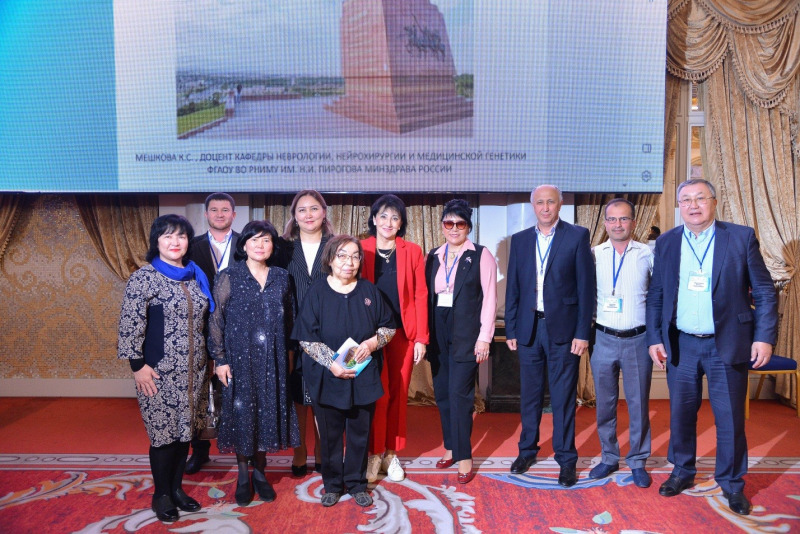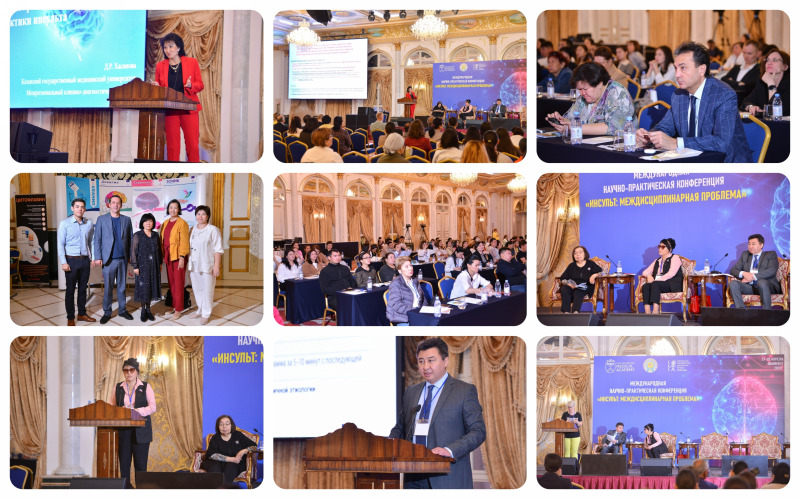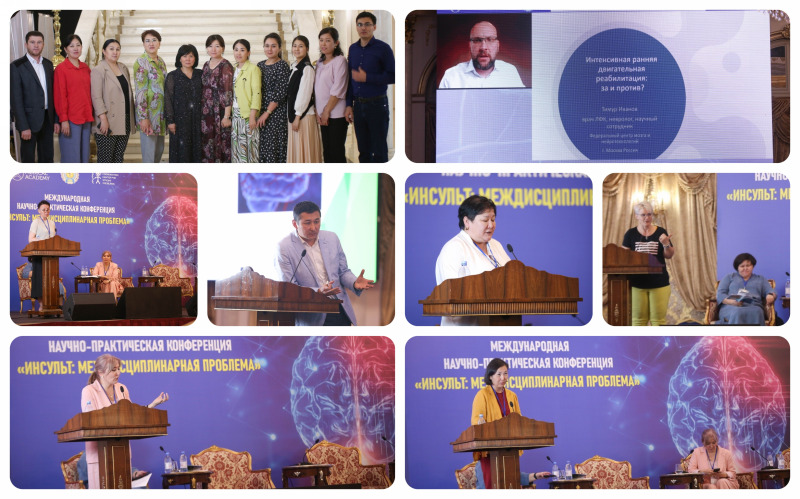Nerve connections are formed by the appearance of new neurons

The second day of the international conference "Stroke: an interdisciplinary problem" was no less interesting than the first.
In the interactive hall Ballroom Rixos Khadisha Shymkent, the meeting was moderated by: S. Turuspekova, Chief Neurologist of the Ministry of Health of the Republic of Kazakhstan, Head of the Department of Nervous Diseases of KazNMU named after. Asfendiyarova, Doctor of Medical Sciences, Professor;

G. Dushanova, Professor of the Department of Neurology of the MKTU Yassavi, A. Zhumadilov, Deputy Chairman of the Board of the National Coordination Center for Emergency Medicine, Astana, Doctor of Medical Sciences, Professor, E. Adilbekov - Deputy Chairman of the Board "National Coordination Center for Emergency Medicine" , A. Kudaibergenova - head of advanced training cycles "Neurology and neurorehabilitation of the Kazakh-Russian Medical University", B. Syzdykova - chief freelance neurologist of the Astana Health Department, head of the Center for Multiple Sclerosis and Autoimmune Diseases of the Nervous System GB No. 1, Ph.D. n.
Presentations were made by:
G. Dushanova - about transient ischemic attacks, approaches to therapy;
D.Khasanova, chief freelance specialist in angioneurology of the Ministry of Health of Tatarstan, MD, Professor of the Department of Neurology and Neurosurgery, Kazan State Medical University, Kazan, Russia -
about modern approaches to the treatment of acute stroke;
S. Turuspekova - about post-stroke cognitive impairment and the possibilities of correction;
A.Zhumadilov - about cerebral edema and modern methods of therapy;
K. Meshkova, Associate Professor of the Department of Neurology, Russian National Research Medical University. Pirogova, Ph.D., Moscow, Russia, introduced the technologies for managing a patient with acute stroke, as well as drug support for the rehabilitation process of patients after a stroke.
A.Sugraliev, head of the Department of Internal Diseases with a course of propaedeutics of KazNMU named after Asfendiyarov, candidate of medical sciences, member of the European Society of Cardiology, Almaty, about the role of DOACs in the prevention of recurrent cardioembolic stroke and the timing of starting ACT after a stroke.
A. Kudaibergenova - explained how important the role of neuroprotection is in the treatment of stroke.
The following reports aroused interest among the invited participants:
Zh. Zholdasova, Director of the Center for the Treatment of Neuroses and Alzheimer's Disease, PhD, Almaty, about post-stroke dementia. Scientists around the world are sounding the alarm. Every year dementia occurs, and this trend is especially observed after the coronavirus, that by 2050 the incidence will increase several times. And in order to slow down the process, it is necessary for healthy people and patients who have had a stroke to engage in physical culture, to give certain physical activities every day. Zh. Zholdasova believes that “new neurons are formed in the same amount that a teenager is 14 years old, that an adult is over 70. There is a slight difference only in the formation of synapses - these are the junctions of nerve cells. This happens due to a lack of protein in the body of the elderly. This discovery only proves that the mental activity of the elderly should not be lower than that of the young, and due to experience it will be even better. So, stop watching TV shows and lying on the couch, take your legs in your hands and go to the gym,” the speaker emphasized.
N. Zharkinbekova, chief freelance neurologist of the Turkestan region, head of the Department of Neurology of the SKMA, drew the attention of those present to the violations of neurogenesis and neurotransmission at different stages of the CVD.
B. Syzdykova - dwelled on post-stroke pain syndromes and therapeutic strategies.
A. Kaisarbekova, head of the Stroke Center GB No. 1 in Astana, spoke about how post-stroke depression goes and how it can be corrected.
T. Ivanov, neurologist, rehabilitation specialist, researcher at the Federal Center for Brain and Neurotechnologies, Moscow, Russia, answered the pros and cons of intensive early rehabilitation, and also emphasized the importance of a systematic approach in the rehabilitation of stroke patients, at different stages.
E. Medetov, Head of the Neurostroke Service of City Hospital No. 1 in Shymkent, Assistant of the Department of Neurology, Psychiatry, Rehabilitology and Neurosurgery of the South Kazakhstan Medical Academy, introduced the neurosurgical treatment of ischemic stroke.
V.Navesova, a neuroradiologist at the Radiation Diagnostics (MRI) room at the Sunkar Premium clinic, doctor of the highest category, Shymkent, spoke about MRI diagnostics in acute cerebrovascular diseases.
The participants of the international conference turned to the speakers with their questions and received answers to them.
By the end of the second day of the international scientific-practical conference "Stroke: an interdisciplinary problem", all those present received certificates.
E. Adilbekov, Deputy Chairman of the Board of the "National Coordination Center for Emergency Medicine", announced the School of Stroke in July this year.

 930 views
930 views
